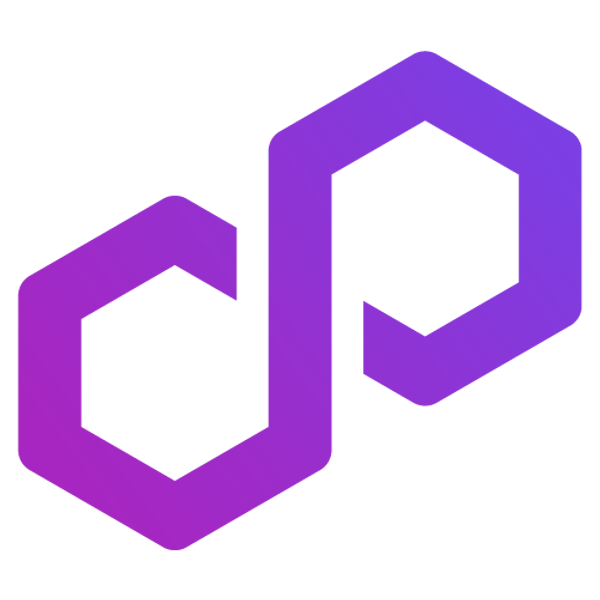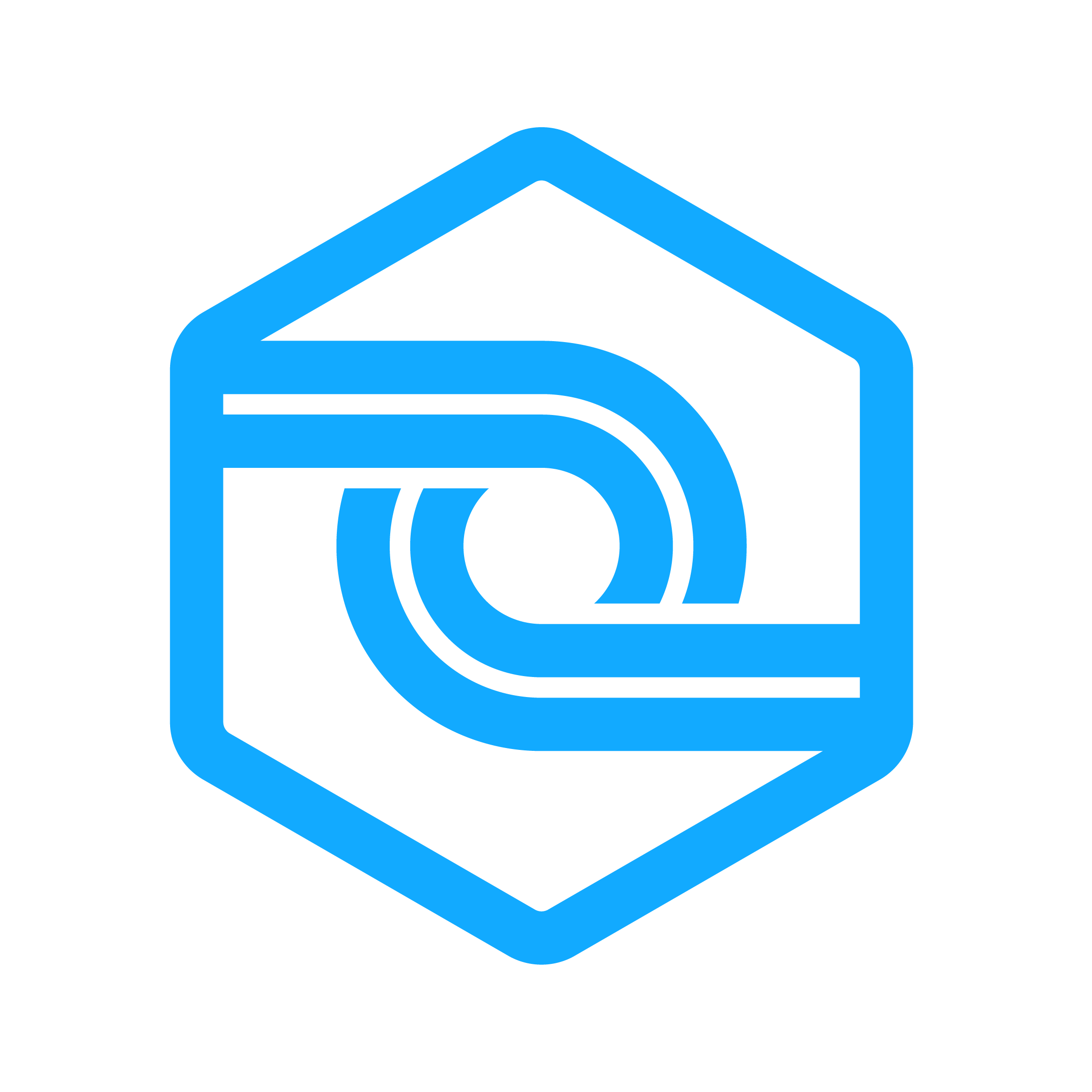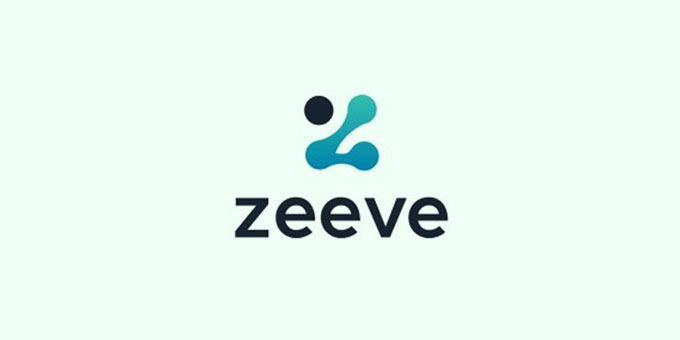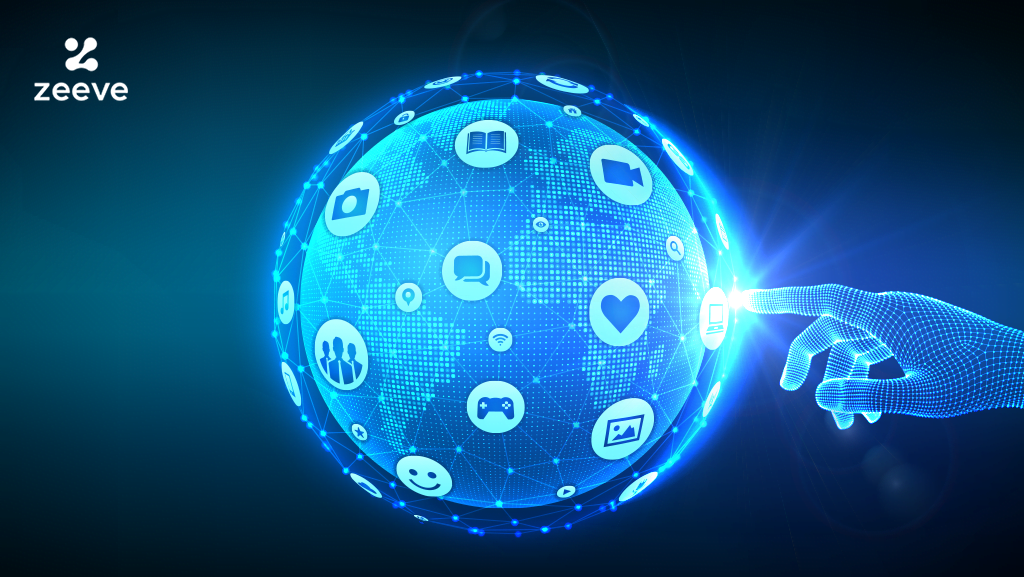The cryptocurrency industry is increasingly focused on NFTs and the Metaverse at present, but the next big thing can just be the decentralized social media. The popularity of social media has skyrocketed in recent years. Sites such as Facebook, Twitter, and Instagram allow people to connect with friends and family, share photos and thoughts, and stay up-to-date on current events. Many people find these sites to be addictive and spend hours each day checking them for new updates.
There are pros and cons to the increasing use of social media. Even though social media serves as a great option for people to stay connected with loved ones, some major social media sites share our data with advertisers so that we get more personalized (or invasive) ads. For example, Facebook has been sharing user data with another company that uses the data to target ads. And Google has been sharing user data with advertisers for years in order to serve more relevant ads. So what can we do to protect our privacy?
Perhaps you can try using other social media platforms compared to this one. The best alternative to Facebook is Orbs. It’s an open-source social platform that uses P2P or Blockchain technologies and allows you to self host some content on their network!
The decentralized peer-to-peer social media, much like the decentralized finance, doesn’t have a centralized government body and central regulations to be imposed on it and may eventually be an alternative to the less sustainable, centralized social media platforms that already exist, such as Twitter, Instagram, and Facebook and TikTok . New technologies affecting the decentralized social media are evolving right beyond the early stages of development.
Emergence of decentralized social media
Advances in social media have changed how we communicate with one another, but controversy surrounds many of these changes. For example, many believe inadequate content moderation has contributed to the spread of fake news during the 2019 coronavirus outbreak. According to the Centers for Disease Control and Prevention (CDC), false rumors contributed to the spread of the virus. The spread of misinformation and irresponsible content across the COVID-19 outbreak has led many to believe that the platforms need to be further regulated.
Even before the outbreak of the COVID-19 pandemic, many people and businesses were dissatisfied with how large corporations handled the perils of misinformation and censorship, privacy, political neutrality, user control, and malicious activity on social media. These concerns have prompted a consolidation of social media. It has led to the emergence of a new trend: decentralized social networks. Decentralized networks enable customers to connect with other consumers rather than just big corporations.
What is decentralized social media?
Social networks based on blockchain technology and that run on independently run servers rather than a centralized server owned and operated by a company can be called decentralized. They are powered by distributed ledger technologies, where activities on the platform are recorded on the decentralized protocol. Exchanges and other resources on various networks (modules, servers) do not communicate and operate at a centralized location. Mastodon is an example of such a decentralized network. It uses free, open-source program code. Another good example is Steem, which provides a social blockchain. Block chain tech let’s data entries be stored in these locations.
The term decentralization has become highly popular in recent years as it makes it possible for a more transparent, fair, and secure network. In a decentralized network, no single authority holds all the data. Instead, data is shared over connection nodes among the network. In a decentralized social platform, the architectural structure is designed in such a way where there is no central administrator of the network that eventually makes it harder to override and atrophied by any means. The crypto-sphere relies on decentralization, with all exchanges stored in a public ledger. But let’s delve deeper into how social media and decentralization come together to benefit content creators and business.
Pertinent features of the Decentralized Social Media and the way it works
Global censorship has made it difficult for social media users to share their opinions. The centralized nature of the industry means that there’s little room for creativity or differences in opinion when every platform looks alike; this also leads many people away from using these sites because they cannot be customized as much – if at all- which makes them feel like less valuable resource than other forms such internet communication methods like emailing one person directly instead sending out multiple emails across different platforms with similar messages inside each one.
Decentralized social media platforms are those that are not dependent on a central authority to control the platform. This can lead to increased security and user control, as well as a lack of censorship. These platforms can also be more difficult to shut down, making them ideal for use in oppressive regimes. However, currently these are less popular than centralized platforms but their distinctive features can attract many to make the transition from the centralized media to the decentralized social media platforms. Here is a look at some of the characteristic features:
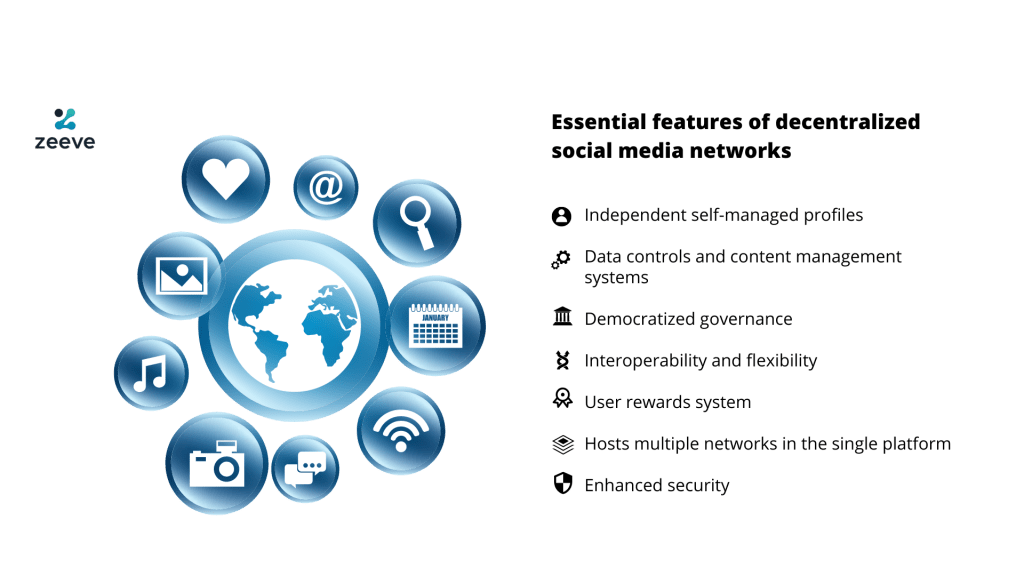
No single central server
The most important thing to consider about decentralized social media networks is that they typically do not depend on one central server. Some of the largest and most mainstream social networks, such as Facebook, Twitter, and Instagram, are all centralized, meaning one central entity controls the overall network. This can be perilous, as it may lead to large-scale cyber-attacks, takeovers and also leakage of information.
Hosts multiple networks within one platform
Decentralized social media platforms have a special function than centralized ones. They support networks that allow users to make their own choice. Any user is able to build a network, thus allowing people interested in similar fields or concepts to interface. Various kinds of social media can be simultaneously hosted on a decentralized platform. Generally, any online user can create an individual community, and anybody with mutual interests or concepts can utilize this form of social media.
There is a system of governance used in such platforms instead of a single entity’s judgment taken as the final word. Users hold the power to vote on relevant issues so as to make their voice heard and also have a say on how the platform progresses, instead of having to just abide by the decisions of the central authority as is the case with social media sites.
Decentralized social media platforms allow an independent server to power multiple networks within one platform. Independently hosted decentralized networks allow users to interact with other networks. One of the main differences between decentralized social networks and popular media, such as Facebook or Twitter is that users in the latter for example can’t send messages on behalf of an account with twitternoise because there’s no cross platform alignment. On contrast though federated environments allow users to engage across platforms
Increased Security
Large, decentralized social media platforms use several independent servers, unlike traditional platforms which use a single centralized server. A myriad of renowned social media websites have experienced glitches, and this is not an uncommon phenomenon.
By making use of additional servers, the likelihood of a full network failure as a result of technical problems is greatly decreased. Furthermore, the likelihood of cyber-attacks is greatly reduced by using this clustered system.
Decentralized social networks, in addition to facilitating communication, have also provided an alternative for the protection of personal information. On federated social-networks, users can devise accounts without the need to provide email addresses or telephone numbers. Moreover, cloud-based social-networks of this form make use of public-key cryptography for account security. Users do not have to conventionally use their real identities on decentralized social networks. They can select pseudo names on their private account, giving them an extra layer of seclusion.
Increased User Control
The lack of user control is another key challenge that users face when using centralized social media networks. The centralization of social media has led to a number of concerns, from censorship and integrity on content created by users. Decentralized networks offer an escape route for those who refuse such restrictions with no authority over their own data or what you share with others in private messages.
Decentralized social networking platforms allow users to have complete control over their data, interactions, and experiences. Anyone who benefits from fairer social media experiences should watch out for the potential censorship by Big Tech.
Many people turn to decentralized networks since they desire to protect themselves from intrusive marketing and advertising along with the dangers it poses. Federated social networks must see new kinds of revenue to be able to continue making money. They frequently use a virtual currency, such as Bitcoin, to make sure operations continue. As an example, Steem pays its users in a form of digital currency, such as Bitcoin. Users are compensated for producing and curating interesting content through Steem, which motivates creators to create more noteworthy content. Steem receives its revenues from investors who believe that the platform will in the long run be worth more.
Decentralized social media has its own flaws. Along with modern technology, decentralized social media has some weaknesses.
Drawbacks of Decentralized Social Media
In addition to offering some exciting opportunities, there are other positive and negative aspects associated with decentralized social media platforms. The most prominent risk is that malicious individuals might take advantage of the way they are set up.
It may seem an attractive concept to set up a decentralized social media network but there are possibilities for it falling to attacks by content creator communities having malicious intent. Some bad actors may use these decentralized social platforms for propagating their vicious ideas and hatred speech, marketing, and unlawful content through the establishment of detrimental communities. Since decentralized networks give users the power to post whatever they want under their own network, it becomes that much easier for dangerous groups to spread their notions publicly. The business community continues to plan for new social media marketing outlets, but that doesn’t make the networks they create a lot more secure.
An individual can also modify a decentralized social network in the authorization of its administrators, meaning that the way the entire platform is structured would not be entirely reliable; users would have more autonomy and ability to act. Decentralized social networking platforms put users in more control over their actions by allowing them to establish how platforms are designed and what users can say. Rather than having a manager for a social network.
Decentralized Social Media Has Potential: Final Thoughts
Decentralized social media platforms are not yet popular enough for the majority of people to use them. But with time, this may change as the existing centralized social media sites become more inefficient and flawed in their current systems. The rise on popularity can be attributed largely due to Centralization within networks where individuals have little control over data consumption or even how it’s used at all
Social network systems are intricate devices that can take years to refine. This is why it can take years for decentralized social networks to acquire significance and witness widespread adoption. However, it doesn’t nullify the possibilities that the decentralized social media sites would open up. As people become more frustrated with Big Tech and its consistent attempts at breaching customer data privacy, we may see a change towards decentralized communication in the near future.
Partner with zeeve for leveraging the decentralized social networks
Zeeve is the primary blockchain infrastructure management platform empowering start-ups and enterprises to build, deploy, and manage reliable decentralized apps and blockchain networks. Our expert team provides a hands-on approach and has experience designing various enterprise solutions in the blockchain space.
Zeeve is a no-code automation platform providing support for various blockchain protocols that will help you build a solution for all your blockchain needs. Get in touch with our team to give flight to your idea!





